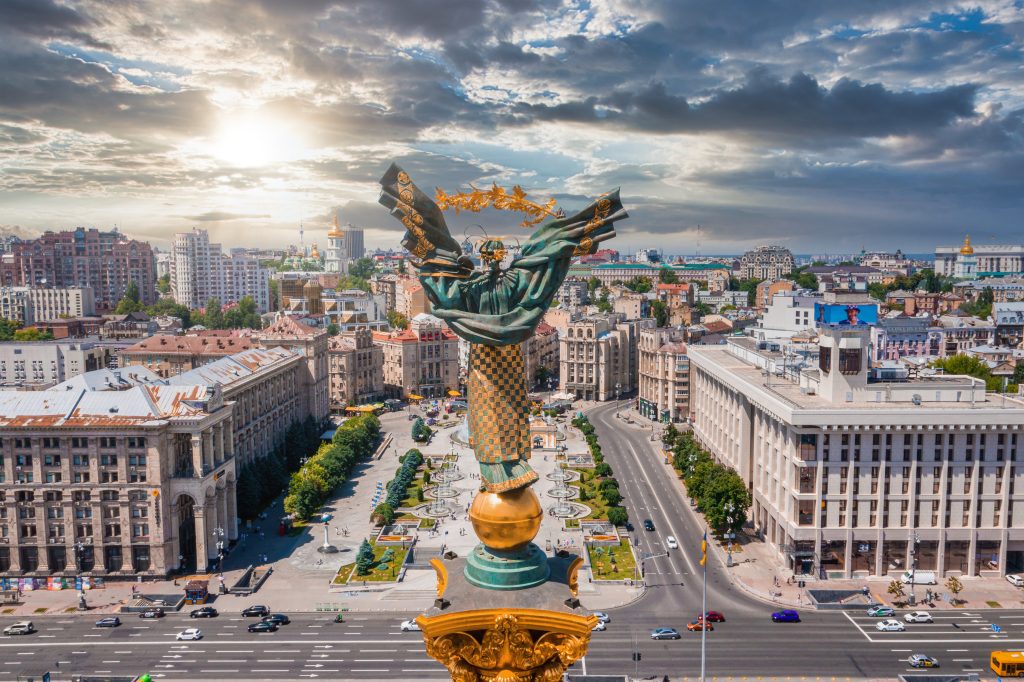Brief analysis
Before analysing changes in Ukraine’s procurement strategy, we should first review recent development in this area, namely public procurement reform through the Prozzoro system. In 2016, Prozzoro was introduced. It disclosed all information about government tenders and created a set of tools to standardize data, which can then be used for control and analysis. The Prozzoro system has greatly reduced corruption and increased transparency for online auctions and public control; according to the government, the system saved more than 7 billion USD in six years. It is worth noting that EBRD called Prozzoro a recommended model for procurement reform.
The Russian invasion entailed colossal destruction and major disruption to government functioning. According to the Kyiv School of Economics, damage to infrastructure is approaching 100 billion USD, and total losses to the Ukrainian economy currently stand at 600 billion USD. Unfortunately, both figures will continue to rise. In addition to this destruction and disruption, the following issues appeared in the government procurement system:
1. On February 28, 2022, a resolution was adopted to allow all procuring entities to buy goods and services without directly using the Prozorro system. This was justified by the increased demand for wartime supplies, including but not limited to medical equipment and materials, food products for displaced people, various supplies for armed forces and humanitarian teams, etc. Such procurement deals must be reported to the Prozorro system no later than 20 days after martial law is terminated or cancelled across Ukraine or in specific localities. More than 13,000 competitive procurement transactions have been announced in Prozzoro since the beginning of the full-scale invasion.
2. Some procurement transactions which should have started before the war were canceled if the buyer was not able to continue their operations due to circumstances out of their control.
3. The Prozzoro system itself continues its normal operations despite numerous hacking attacks, and it even introduced new improvements. For example, under martial law, some transactions can be marked with “war for freedom.” This allows companies to make a standard competitive transaction with the option to submit a report sooner than the mandated 20 days post-martial law.
While it may speed up the general procurement process, the new system has also made room for corruption. With no formal tender procedures, authorities and their officials have an autonomous right to select suppliers. Some instances, reported by media or monitored by independent observers, reveal alleged corruption schemes in some government institutions. At the same time, there are many examples of the system’s success; deeply patriotic government employees have worked tirelessly to supply everything needed for the state to resist Russia’s invasion and to help local communities survive.
According to public pledges by many international politicians, a Marshall Plan will be created to help Ukraine rebuild after the war, which the government must prepare to implement. This support and reconstruction process may allow Ukraine to rebuild itself as well as to create a more prosperous economy, one which includes new large-scale digital and green projects. The success of this rebuilding process will likely rely heavily upon the public procurement system’s efficiency.
February 24 divided the life of Ukraine into “before” and “after.” It must be acknowledged that many procurement approaches that were successful before the war are no longer effective due to the conflict and the vast changes it caused. However, as soon as Ukraine wins the war, hundreds of large-scale projects will be launched, and numerous business opportunities will emerge for both international companies and Ukrainian local businesses. For procurement, it will be vital to maintain openness and transparency. And all of this can greatly benefit both Ukraine and its partners if a single platform is used.
Key recommendations for international businesses:
1. Contact potential government buyers directly and offer the best price for your product. Most local buyers prioritize the speed of import processes as some services and supplies may be urgent needs. Many new opportunities have emerged since the war, and they continue to do so as the country’s needs change.
2. Focus on Ukraine’s immediate needs––with speed. Food products, fuel, medications, building materials, and critical infrastructure projects in deliberated regions are currently in the highest demand.
3. Many officials responsible for procurement in different public bodies do not speak English fluently. If you are an international business, avoid difficulties related to language barriers by hiring a local consultant or representative who can quickly and seamlessly connect with officials.

